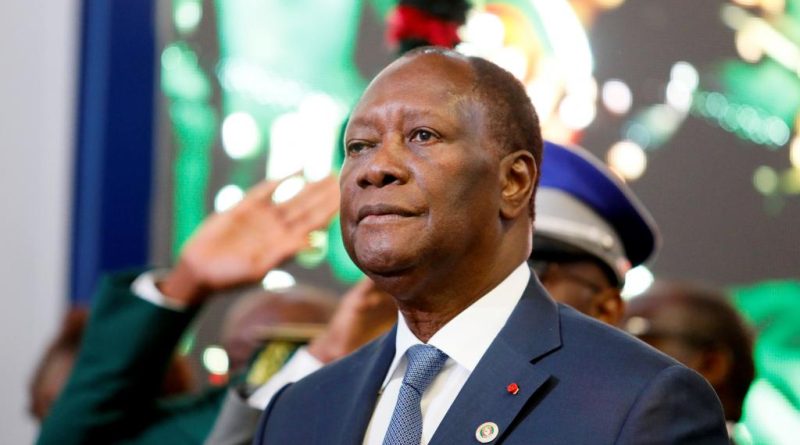Ivory Coast’s Ouattara secures fourth term with landslide election win
Ivory Coast Prenews, nt Alassane Ouattara has secured a fourth term in office following a landslide victory in the country’s presidential election, according to preliminary results announced on Monday.
Mr Ouattara, 83, who has governed the West African nation since 2011, won 89.77 per cent of the votes, the Independent Electoral Commission said.
Associated Press reported that Jean-Louis Billon, a former commerce minister from one of the Ivory Coast’s richest families, came in a distant second with 3 per cent of the vote. Simone Gbagbo, a former first lady, came in third with 2.4 per cent.
Final results are expected by early November, though they could be announced sooner, the AP said.
The election was marred by low voter turnout and subdued activity across much of the country, including the usually bustling streets of Abidjan, the economic capital.
Nearly nine million Ivorians were eligible to vote, but less than 50 per cent cast their ballot in a race that excluded Mr Ouattara’s main challengers.
Former President Laurent Gbagbo was barred from contesting due to a criminal conviction, while ex–Credit Suisse CEO Tidjane Thiam was disqualified for holding French citizenship. The remaining four candidates lacked major party backing or financial strength, according to Al Jazeera.
Many observers say the subdued atmosphere during the presidential election reflected public anticipation of President Ouattara’s victory, as well as voter fatigue and frustration over the disqualification of major opposition figures.
Mr Ouattara, a former International Monetary Fund official and longtime political figure, secured a decisive win for a fourth consecutive term, further consolidating his dominance since he first came to power in 2011.
His re-election, however, has renewed debate about political inclusivity and leadership renewal in one of West Africa’s largest economies, according to Al Jazeera.
READ ALSO: ANALYSIS: Can Rivers run an independent government after Fubara’s reinstatement?
Mr Ouattara’s critics accuse him of undermining democracy by handpicking opponents and manipulating the system to extend his rule. Many Ivorians boycotted the vote, angered by his decision to run again despite a two-term constitutional limit.
In the run-up to the polls, sporadic protests erupted over the disqualification of opposition figures. Authorities banned demonstrations and arrested more than 200 members of the Common Front political movement.
Mr Ouattara points to his economic record as justification for continuity, citing major infrastructure projects, foreign investment, and improved stability.
Yet social inequality and corruption remain high, with many citizens saying they have not benefited from the country’s growth. Public debt stands at about 60 per cent of GDP, while unemployment and the high cost of living persist, according to an analysis by Al Jazeera.
As internal divisions linger within the ruling party, Mr Ouattara has pledged to prepare a transition to a younger generation of leaders.

